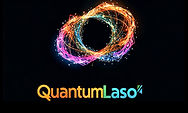Why can't we cure or treat cancer in 2025?
- mansour ansari

- 6 days ago
- 2 min read

I ask myself this question every night. Why, in 2025, with all our satellites, supercomputers, and AI models that can paint, write, and even predict the weather, why can’t we cure cancer?
I’m a retired software engineer, sitting alone most nights in Oklahoma City. My lab isn’t in Silicon Valley or a university campus. It’s a small, cluttered room with a few PCs, cables, and quantum hardware blinking quietly — a strange mix of code, coffee, and hope.
I’ve watched cancer take too many people — friends, neighbors, family members — each story ending the same way: a fight against something that still feels beyond our reach.
And yet, we’ve had miracles before. Think of Imatinib (Gleevec) ,one of the first targeted cancer drugs. It turned a deadly leukemia into a manageable condition. But it took over a decade of research and nearly $2 billion to bring to market. Or Herceptin, for breast cancer — discovered in 1984, approved in 1998, and costing patients thousands per month. Even today, CAR-T therapies that reprogram your immune system to fight cancer can cost over $400,000 per treatment. Who the hell has an extra 400K every month to use this? Well, may be some do but most don't. Humm 400K?
The science works, but the process is unbearably slow, expensive, and exclusive. We’re fighting one of nature’s most adaptable systems using tools that still think in straight lines.
That’s why I started QuantumCURE. Not as a company, not for money, but as an act of defiance. Fuck cancer! Yeah, FUCK Cancer. I wanted to see if I could take the randomness of the universe — true quantum entropy, and use it to help machines discover new molecules, faster, cheaper, and more creatively. I built the system myself: hardware, cloud pipeline, AI layer, all stitched together from curiosity and conviction.
Will I succeed? I honestly don’t know. But I do know this: IF there’s even a small chance that a retired software engineer, working from a garage/back office in a small closet in Oklahoma, can help speed up drug discovery or make one scientist’s job easier , then I must try.
I’m not afraid of failure anymore. I have failed many times and stood up and fought. I’m afraid of doing nothing while cancer keeps taking lives. So I’ll keep weaving code and modern AIs, keep experimenting, keep exploring molecular docking, protein prep, scoring and registering, and keep believing that maybe, just maybe , we can teach our machines to listen to nature’s own randomness and find what we’ve been missing.
I’ll leave behind the tools that might help someone else find it. That’s enough for me.
“You don’t have to save the world, but you have to try.”— M. Ansari




Comments